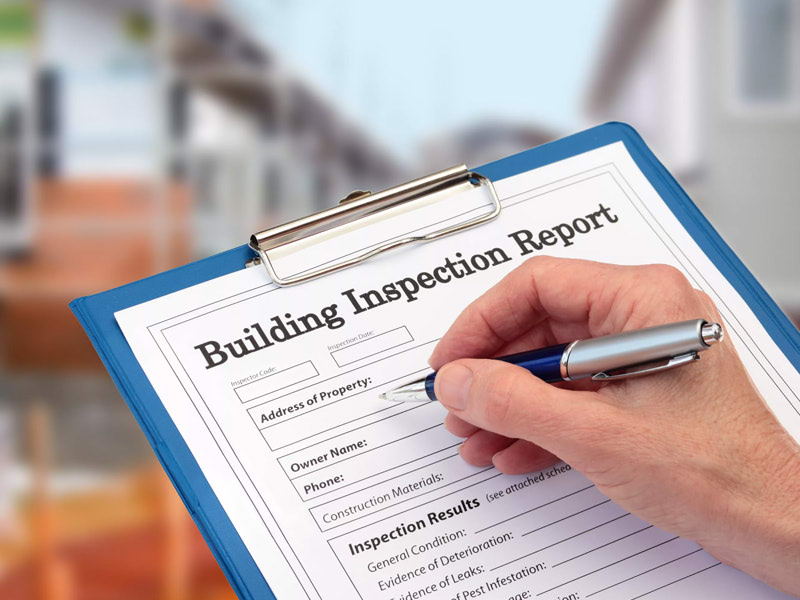In Australia, there are various rules and regulations that govern the purchase or sale of property, and these laws differ across the different states. The most famous document in this sphere is “Section 32” used in the state of Victoria. But Queensland real estate transactions are conducted using a Contract of Sale for House and Residential Land, which was created by the Real Estate Institute of Queensland (REIQ) and is supported by the Queensland Law Society.
The REIQ Contract for House and Residential Land, currently in its 17th edition, is a concise document that is utilized by both the seller and the buyer during a property sales transaction. To learn more about how to buy and sell real estate in Queensland, read on.

What does the standard REIQ contract include?
When it comes to purchasing real estate in Queensland, there is no contract exchange process as seen in Victoria and New South Wales. In Queensland, both the buyer and seller sign the REIQ sales contract once negotiations are concluded. The contract, which differs for houses and community title schemes, is created initially by the seller’s representative, such as a conveyancer or real estate agent. The prospective buyer’s information is added to the contract once negotiations begin.
Subsequently, the buyer takes a copy of the signed sales contract to their legal representative for review during the five-day cooling-off and/or finance period. Time is critical when purchasing Queensland real estate, and several requirements, such as finance, building, and pest inspection reports, must be met during the property settlement period.
The REIQ contract template includes several elements, such as:
- The accurate seller and agent details, including both sellers’ names for jointly-owned properties, to avoid potential issues during settlement.
- Lists the property’s official details and excluded fixtures, along with the buyer’s details and legal representative.
- The buyer’s offered price, which can be changed during further negotiations agreed upon by both parties, along with any encumbrances or tenancies. This page also lists the finance or building and pest inspection periods, which must be met during the property settlement period. Once the finance period passes and the sale becomes unconditional, it is generally difficult to legally walk away from the transaction in Queensland.
- There are disclosures about pool and electrical safety, smoke alarms, and any disputes involving dividing fences or trees.
- The contract allows for the inclusion of any special conditions, such as early access to the property for renovations or tenant preparation, which cannot be written by an agent in Queensland and must be prepared by a legal practitioner for clarity.

It is important for buyers to exercise caution when it comes to special conditions added to the contract. Some sellers may remove certain provisions from the standard terms of the contract without fully explaining the implications to the buyer. If a buyer is unsure of the meaning of a special condition or has concerns that it may unfairly impact them, they should seek specialist advice immediately.
The standard REIQ contract recommends that the buyer obtains independent legal advice and a property valuation before signing the contract and exercising their cooling-off rights. Similarly, a seller should also seek specialist advice before signing the contract to understand the implications fully.
However, in most cases, a buyer’s agent or a conveyancing solicitor is contacted much earlier. Here is a short guide for buyers and sellers to give you a better understanding of the steps involved in the transfer of property in Queensland.
REIQ contract and insurance
According to the REIQ contract, the buyer assumes the risk of the property from 5 pm on the first business day after the contract date. Therefore, it is crucial for buyers to safeguard their interests in the property by obtaining suitable insurance as soon as possible after signing the contract.
Buyers who are obtaining finance to complete the purchase should also take note that most lenders require insurance as part of the loan agreement. As such, buyers should ensure that any insurance they arrange complies with the insurance requirements of the lender.

How do I know if my Contract is subject to Finance?
To identify if your contract is subject to finance, check for the finance section in the contract. Typically, in Queensland’s standard REIQ contracts, this section is in clause 3. If any of the sections, such as ‘finance date,’ ‘finance amount,’ or ‘financier,’ are left blank, the contract may not be subject to finance (with some exceptions if special clauses are included).
If the contract is dependent on finance, the finance section of the contract should specify a deadline for meeting the financial requirement, usually within 14 or 21 days after all parties sign the contract.
However, contracts can differ, and it is advisable to consult a solicitor who can review the contract before you sign it. They can ensure that all necessary conditions are included, correctly worded, and meet your requirements.
What happens if the buyer does not receive financial approval?
If a buyer does not receive satisfactory finance approval by the finance condition due date, they can terminate the contract and receive their full deposit back, provided that the contract is subject to finance and provide they have taken reasonable steps to obtain approval. It is important to inform the solicitor in such circumstances, as notice of termination should be given to the seller by 5 pm on the finance condition date.
However, if the contract is not subject to finance, the buyer cannot terminate it. It is important to note that the buyer must take all reasonable steps to obtain approval as per the contract. Failure to do so may not give the buyer grounds to terminate the contract. This clause is intended to prevent buyers from terminating the contract for reasons other than finance, such as a change of mind.

The Building and Pest Inspection Reports Clause in the REIQ Contract
Clause 4.1 of the REIQ contract states that the contract is subject to the buyer obtaining a written building report and a written pest report, or a combined report from a qualified building and pest inspector on the property by the inspection date, on terms that are satisfactory to the buyer. It is important to note that clause 4 will only become active if the inspection date is completed in the Reference Schedule. The buyer is responsible for taking all reasonable steps to obtain the necessary reports but has the option to elect to obtain only one of the reports.
Clause 4.2 of the contract allows the buyer to terminate the contract if, acting reasonably, the inspector’s report is unsatisfactory to the buyer. In such cases, the buyer must inform the seller in writing of their intention to terminate the contract by 5 pm on the inspection date. If requested by the seller, the buyer must provide a copy of each report without delay.
If the buyer fails to provide notice under clause 4.2 by 5 pm on the inspection date, the seller may terminate the contract by notice to the buyer. This is the only remedy available to the seller for the buyer’s failure to give notice.

Can I change the standard REIQ contract?
Various special conditions can be incorporated into the standard REIQ contract. For instance, a purchaser may demand that the contract is contingent on the sale of another property or the fulfillment of specific tasks on the property before the settlement.
It is crucial to prepare these provisions meticulously to prevent any ambiguity. Ideally, an attorney should compose a suitable clause that fits the specific circumstance.
Of course, you will need the help of a conveyance solicitor to make changes to the contract. Our GM Law team has nearly 25 years of conveyancing experience and is one of the leaders in conveyancing services in Brisbane. You can contact us via email or call 1300 185 636.
Our blog also has several articles on topics you might be interested in:


